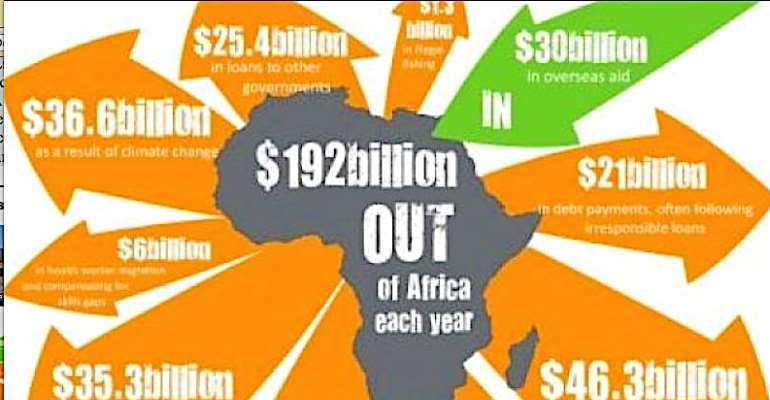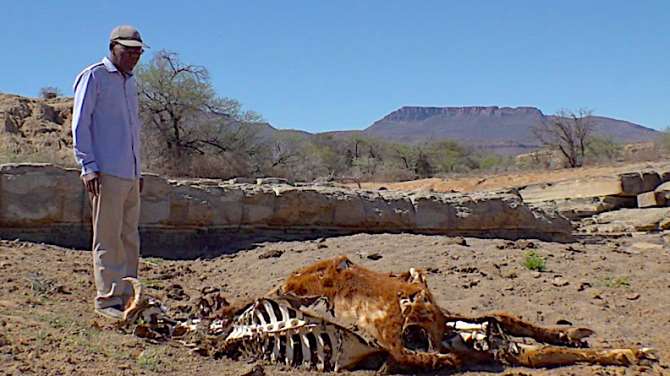World Bank Deepening Engagement On Climate Action With $17b In Africa

The World Bank, an agency of the United Nations, has through its Climate Business Plan (ACBP) spent billions of dollars to help Africa stay out of climate change risks before 2030 and 2050, when global warming was conjectured to reach 1.5 degrees Celsius, ODIMEGWU ONWUMERE writes
There was apprehension all over the world at a time on how to carve a niche that could help humanity especially in Africa not to plunge into chronic poverty due to the effects of climate change.
A scheme later emerged in 2016 through the World Bank to alleviate poverty on the continent. There were plans by the Bank to build schools, dams, smart-agric and so on, as part of its climate resilient programme but especially in rural communities of Africa.
The Bank is today committed in the areas of human and social capital – paying attention on health, social resilience and education on the continent. The Bank is also on top gear to monitor and report on climate resilient development in Africa.
The UN agency could not sit on monetary issues alone and watch African countries destroyed by rising climate change hence it initiated the Action Plan on Climate Change Adaptation and Resilience, having the Sub-Saharan Africa as main concern.
The worldwide organization through its Africa Climate Business Plan (ACBP), has released $17 billion since 2016, as part of its efforts to help the continent meet the needs in the fight against climate change, said its report of last year. Those who know better said the ACBP aims to strengthen its obligations to:
1. expedite mainstreaming of climate action to transformation at scale
2. support scaled-up and transformational investments in key sectors, including climate-smart health and education, to strengthen health systems and build climate-resilient economies
3. harness innovation and technology such as satellite technology to leap from countries toward climate resilience; and
4. raise finance and accelerate the mobilization of private sector investment, especially for renewable energies.
World Bank staying ahead of climate risks
“World Bank staff estimates that implementing the ACBP will cost about $19.3 billion in the period 2016-2020, of which about $8.5 billion could come from the International Development Association (IDA),” said media reports.
“The ACBP also defines further results that could be achieved in the longer term (up to 2025), for an estimated cost in the order of $21 billion.”
Examination revealed that African countries have the full support of the World Bank with the launch of WBG Action Plan on Adaptation and Resilience as plan to handle climate risks by helping in all facets of sustainable development with the sum of $50 billion over the next five years.
According to Kanta Kumari Rigaud, Lead Environmental Specialist and Regional Climate Change Coordinator for the Africa Region, “Staying ahead of climate risks may be a challenge, and a focus on anticipating and managing climate risks is a critical part of the solution.
“There is an urgency to replicate and scale up on the multiple successful projects and programs of the ACBP.”
Building resilience in countries
Investigation disclosed that the Bank is working with eight African countries that include Rwanda, Mali, Cote d’Ivoire, Namibia, Uganda, Mozambique, Zimbabwe, and Kenya, to infuse climate resilience and adaptation during its procedure in the region.
“This is to help them meet their Nationally Determined Contributions (NDCs) submitted under the Paris Agreement,” according to World Bank.
The ACBP asked countries on the continent to be resilient against global warming through "landscape management, improved climate-smart agriculture practices and increased renewable energy generation capacity."
According to Hafez Ghanem, World Bank Vice President for Africa, “Building on the success of the ACBP thus far and the lessons learned along the way, the World Bank’s Africa region is deepening engagement with African countries on climate action and setting new ambitious targets going forward.”
$200 million Mapped Out For Kenya
In 2018 when Kenya had it very rough as torrential rains were not favourable to her, damaging property and killing about 150 people and more than 300,000 persons displaced, the World Bank characterised the natural catastrophe by ‘crisis’ and opened its bank to the tone of $200 million for Kenya that would allow her handle future occurrence.
“Supporting adaptation and resilience to major climate impacts like the catastrophic floods in Kenya – and preparing countries for a low-carbon, climate resilient and sustainable future,” as according to the source, “is at the heart of the World Bank’s Africa Climate Business Plan (ACBP).”
It continued, “The ACBP has already delivered $17 billion through International Development Association (IDA) and International Bank of Reconstruction and Development (IBRD) financing for climate action, double the target that had been set for 2020.”
ACBP’s yielding positive outcomes
Today, the World Bank has said that its investments in extenuating climate change in Africa have yielded the corresponding results they were intended to achieve with countries like Zambia, Mali, Côte d’Ivoire, Lesotho, and Zimbabwe, ACBP enjoying increase of devoted Climate-Smart Agriculture Investment Plans, through the ACBP support.
World Bank’s data explained, “These investments are contributing to efforts to increase food security for rural poor people through crop diversification, solar-powered irrigation, boreholes, rehabilitated canals and mainstreaming climate knowledge via national development plans.”
In Mozambique and Cameroon there are the Nachtigal Hydropower Project and integrated landscape management of commercial resources respectively through the ACBP. Also, no fewer than 40 million people athwart the province met with their basic energy needs with renewable energy solutions by using off-grid solar (through the support of the joint World Bank-IFC Lighting Africa Program) in summer of 2018.
According to sources, “Kenya has one of the most successful electrification programmes in Sub-Saharan Africa; more than 40% is powered by renewable geothermal energy. Together with IDA guarantees, Kenya has leveraged $431 million from private capital for the development of 250MW of thermal capacity.”
It is therefore expected of African countries to sustain the efforts put in place by the ACBP in order to stay out of climate change risks between 2030 and 2050, when the global warming was forecast to reach 1.5 degrees Celsius.
Odimegwu Onwumere writes from Rivers State. E-mail: [email protected]

